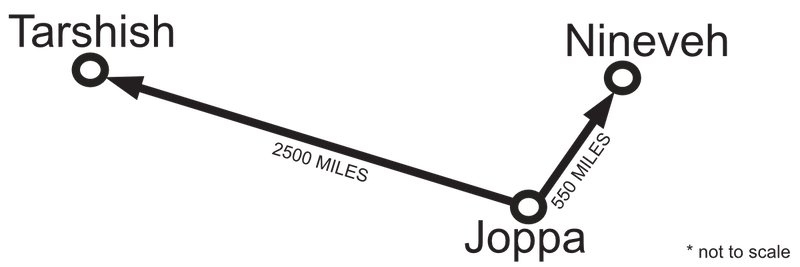
I like cat naps. Twenty minutes’ rest can leave me completely refreshed. However, if interrupted, they're impossible to regain; I tend to guard my naps quite jealously. One day I heard Peter calling my name while I slept. Annoyed, I debated ignoring him, but in the end grudgingly woke to see what he wanted. When I inquired, he told me he hadn't called me at all. What I had heard must have been part of a dream.
Later considering my irritation, I realized how remarkable the story of young Samuel and Eli the elderly priest was. Samuel was resting at night when he thought he heard Eli calling his name. He ran to Eli and answered, "Here I am”. [1] Samuel didn’t fake sleep but came running to Eli's voice. His submission and obedience were wholehearted.
The second and third times Samuel’s name was called, he “arose and went" [2] to Eli. It may be that the boy’s weariness overwhelmed his ability to run after the first time. However, his continued obedience and submission indicate deep humility. Surely the temptation not to respond would have grown with each frustrating denial that Eli had called him. Yet still he came.
Without such attitudes of submission, obedience, and humility, Samuel would have never learned to recognize the sound of God's voice. Instead, he became known as a prophet of the Living God. The training he received right from childhood would orient the rest of his life.
Another man, named Jonah, was also known as a prophet of God. Today, he’s viewed as a rather disobedient one. God asked him to go to the residents of Nineveh, a wicked city, to deliver a message that they were about to be destroyed if they did not repent of their ways.
Jonah hated Nineveh, the capital of Israel's mortal enemies, the Assyrians. These were the people who had captured and exiled the inhabitants of Israel's northern kingdom, laid siege to Jerusalem, destroyed dozens of the smaller cities in the southern kingdom of Judah [3], and eventually set up a protection racket whereby Judah paid tribute money in exchange for not being destroyed completely. Ninevites were well known for their cruelty in the ancient world. [4] Of course Jonah did not want to be a part of the rescue plan God was hatching! So he ran away from Nineveh in the opposite direction (towards Tarshish).
Perhaps you know the rest of the story—of the storm God sent to threaten the ship Jonah was sailing on; of Jonah being thrown into the sea; of the large fish that came, swallowed him, and transported him towards Nineveh before spitting him up.
Jonah’s journey was fascinating, even before the big fish entered the picture. To get anywhere, the prophet first had to go to Joppa which, with its expansive view of the coastline, was an ancient port city in Israel. [5] It was the departure point for ships to many places, including to Ninevah (where God told him to go) and to Tarshish (to where he fled). The situation gets really interesting when we look at a map of the three cities:

Compared with the distance to Nineveh, Tarshish is almost 5 times the distance from Joppa. This highlights an important spiritual reality: we often expend much more effort to disobey God than we would to obey Him.
The man who made his living as a spokesperson for God was no longer willing to submit to and obey his Master. As scholar and theologian Tim Mackie once observed, "Jonah thinks he’s running for his life; the sad reality is, he’s running from his life.” (emphasis mine) [6]
After a stint in the belly of the big fish, Jonah prayed to God once more. The big fish disgorged its passenger, who proceeded to Nineveh where he proclaimed the coming judgement of the Lord: "Forty more days, and Nineveh will be overthrown." [7]
Jonah’s word for "overthrown" was haphak, which comes from a root word that can be translated either as "turned over" (i.e., "destroyed", the way Sodom and Gomorrah were destroyed), or "turned around" (i.e., "brought to repentance"). [8] His message included both a warning and a way out.
On hearing this, the Ninevite king wanted there to be no misunderstanding of his people's repentance. Though donning sackcloth was a common practice to demonstrate repentance in ancient cultures, fasting for repentance was foreign to the Assyrians and Babylonians. [9] It seems likely that the king of Nineveh did some research into Hebrew traditions in order to show proper penitence before the fearsome Hebrew God.
As is so often the case when we interact with other cultures—or in this case, the God of another culture!—the Ninevite king exaggerated his actions to the point of being funny and perhaps rather dangerous. Not only did the people fast from food, but they were not allowed to drink. Not only did the people fast and wear sackcloth, but so did the animals. I find myself touched by the lengths the Ninevites went to in order to demonstrate their sincerity.
The Ninevites’ earnestness challenges our perceptions of Jonah. At God’s initial command, the prophet had rebelled and disobeyed. Later, he’d obeyed, but what was the state of his heart? We might be inclined to equate his obedience with repentance, but when we pause to compare the Ninevites’ sincerity to Jonah’s response, a different picture begins to emerge. While in the belly of the fish, Jonah certainly expressed distress, but did he really confess and repent? Or, was his obedience grudging?
When God relented from demolishing Nineveh, Jonah’s gleeful dreams of destruction were themselves destroyed. The prophet was displeased and expressed his frustrated revenge to God, complaining, "I knew You would do this and that's why I ran away!” [10] Jonah defended his former disobedience. That is not something a repentant person would do. We are left to conclude that Jonah’s obedience was in name only. His heart was still full of rebellion. He tried to dictate to God what was acceptable and unacceptable. Yes, he had prayed to God; yes, he had communicated God’s message to the Ninevites; but in his heart and prayers there was no real confession or repentance, and he later justified his defiance.
When we hear from God, if our hearts are not aligned in submission and obedience to Him, we rob ourselves of the joy that could be ours if only we would humble ourselves before our Master. May we each cultivate hearts like Samuel's, and not hearts like Jonah's!
NOTES
[1] 1 Samuel 3:5.
[2] 1 Samuel 3:6,8.
[3] “Assyrian siege of Jerusalem,” Wikipedia, accessed March 17 2023, https://en.m.wikipedia.org/wiki/Assyrian_siege_of_Jerusalem.
[4] See the book of Nahum.
[5] “Jaffa,” Wikipedia, accessed March 17, 2023, https://en.m.wikipedia.org/wiki/Jaffa.
[6] Tim Mackie as quoted in The Meeting House videocast, “Jonah, Jesus, and Us 01: The Man, The Myth, The Legend” introductory quotations, minute 2:09.
[7] Jonah 3:4.
[8] James Bruckner, Jonah, Nahum, Habakkuk, Zephaniah: NIV Application Commentary, Zondervan, 2025, Jonah 3:1-5 entry
[9] Mark W Chavalas, Bictor H Matthews, and John H Walton, IVP Bible Background Commentary: Old Testament, InterVarsity Press, 2021, see notes on Jonah 3:5-10.
[10] See Jonah 4:2–3.










